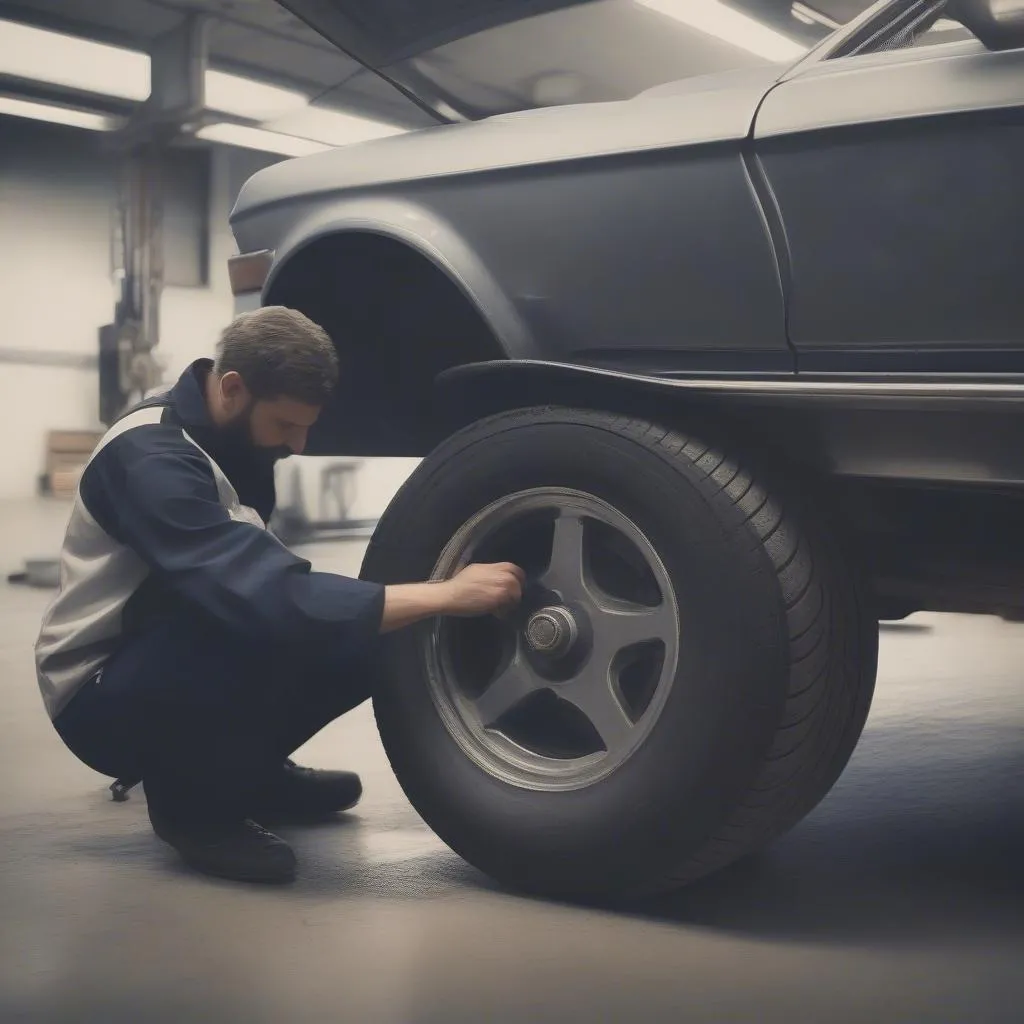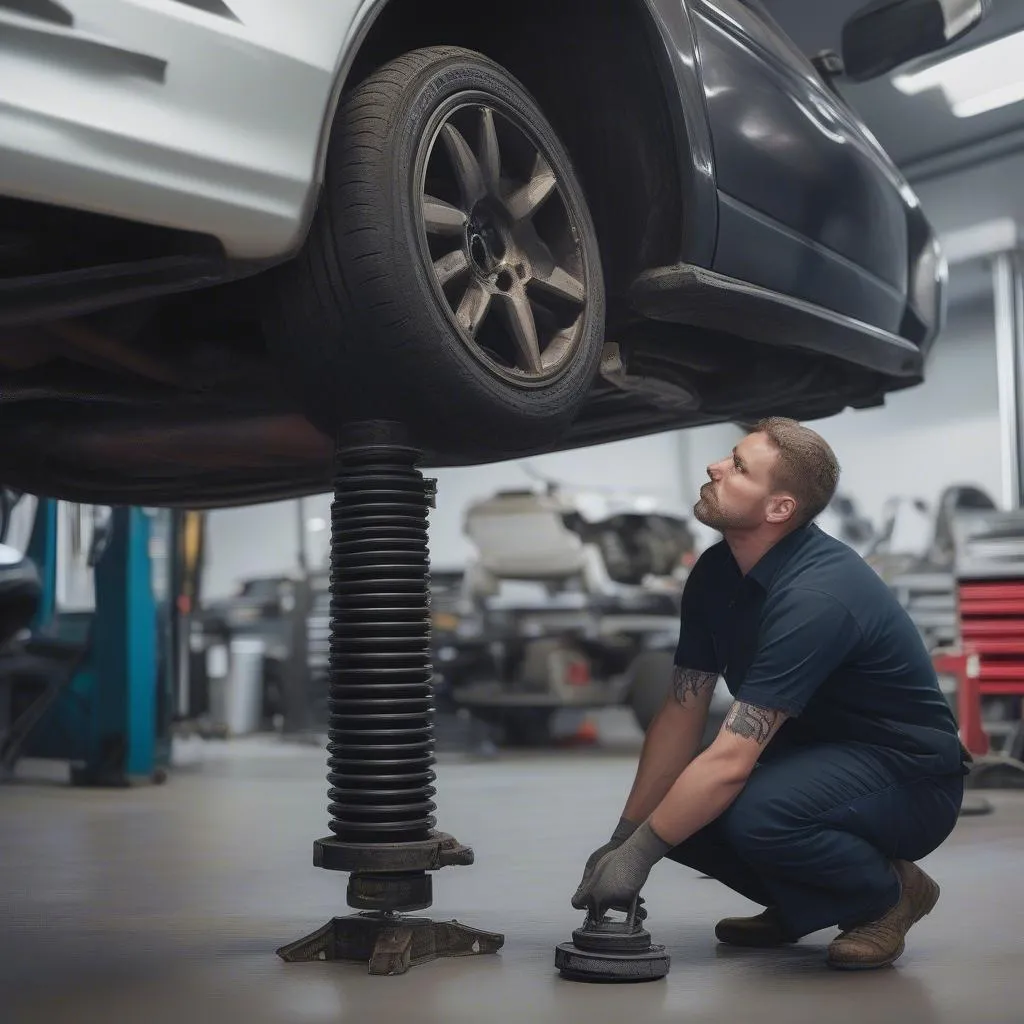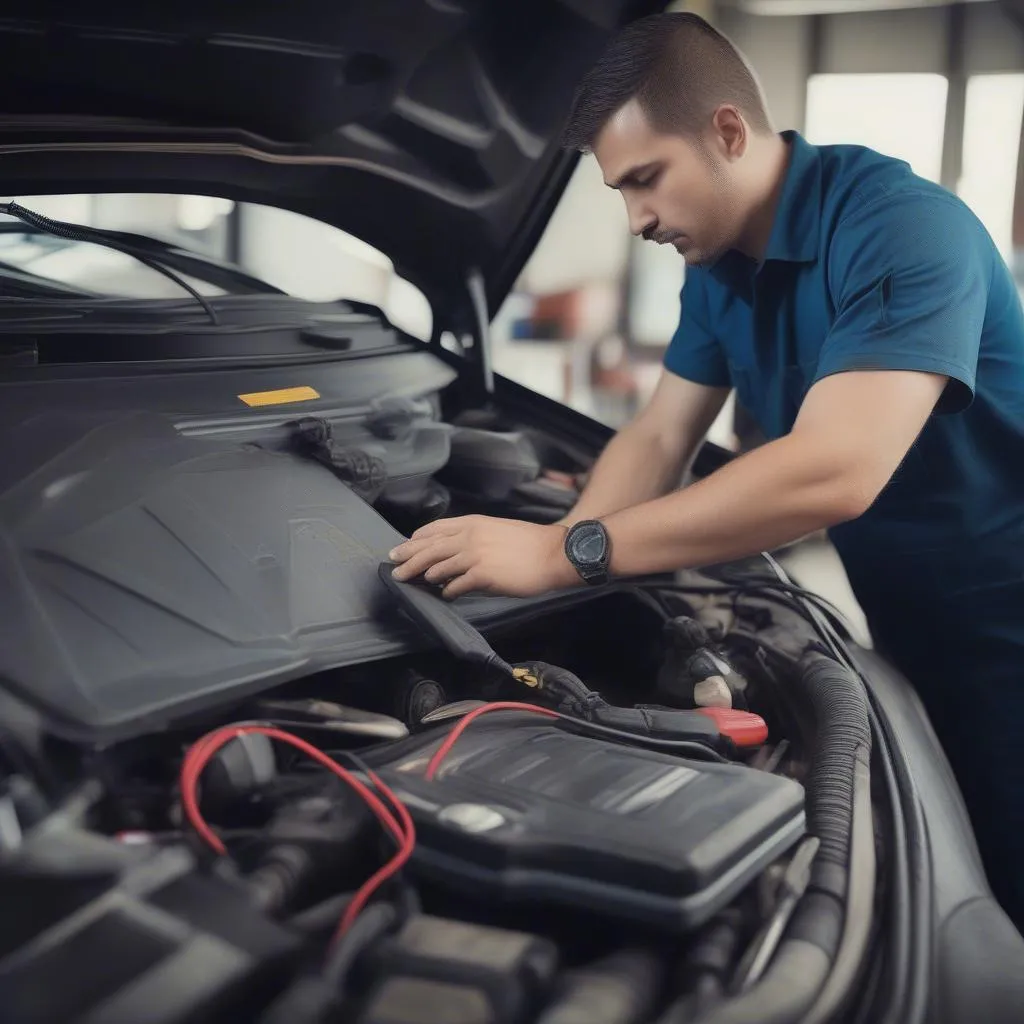Imagine this: you’re cruising down the highway, feeling the wind in your hair, and suddenly, your car starts shaking violently when you hit 50 mph. It’s a disconcerting experience, and you’re probably wondering what’s causing the problem and how to fix it.
Understanding the Issue: Why Does My Car Shake When I Accelerate Over 50 MPH?
This issue is a common one, and it can be caused by a variety of factors, ranging from simple tire problems to more serious engine issues.
From a Mechanic’s Perspective
As a mechanic, I’ve encountered this problem countless times. It’s important to understand that the shaking often starts at a particular speed, indicating a problem with something rotating at a specific RPM. This usually points to the wheels, tires, or drivetrain components.
The Technical Side
The shaking you’re experiencing is caused by vibrations that are transferred to the vehicle’s frame. These vibrations can be caused by a variety of factors, including:
- Unbalanced or Damaged Wheels: This is a common culprit. Wheels that are not properly balanced can cause shaking, especially at higher speeds. A damaged wheel, such as one with a bent rim, can also cause vibrations.
- Uneven Tire Wear: Uneven tire wear can create imbalances that result in shaking. If your tires are worn unevenly, they’re more likely to vibrate at higher speeds.
- Tire Pressure: Tire pressure that is too high or too low can lead to uneven contact with the road, causing shaking. Always ensure your tires are inflated to the manufacturer’s recommended pressure.
- Suspension Components: Worn-out suspension parts, such as shock absorbers, struts, control arm bushings, ball joints, or tie rod ends, can cause vibrations and instability, particularly at higher speeds.
- Drivetrain Problems: Issues in the drivetrain, such as a worn-out CV joint, a bad axle, or a damaged driveshaft, can cause shaking, especially under acceleration.
- Engine Misfire: An engine misfire can cause shaking in the car, and it’s often accompanied by a rough idle or loss of power.
- Brakes: Warped brake rotors can lead to pulsations in the brake pedal and shaking in the steering wheel at certain speeds.
Common Scenarios
Scenario 1: The New Car Shake
Imagine you’re driving your brand-new 2023 Toyota Corolla on the highway, excited for your road trip. Suddenly, you feel a shaking sensation around 50 mph. This could be an alignment issue, a faulty tire, or even a minor defect in the vehicle. It’s best to take it back to the dealer for inspection.
Scenario 2: The Old Car Rumble
Let’s say you’re driving your reliable 2010 Honda Civic, a car you’ve had for years. It’s started to shake during acceleration, and it seems to be getting worse over time. This might indicate worn suspension components, a worn CV joint, or even a problem with the engine mounts.
Troubleshooting and Solutions
If your car shakes when you accelerate over 50 mph, it’s crucial to pinpoint the cause to fix the problem. Here’s a guide to troubleshooting:
- Inspect your tires and wheels: Check your tire pressure, look for uneven wear, and examine the wheels for any damage or bends.
- Have your wheels balanced: If the tires or wheels are not balanced, a wheel balancing service can resolve the issue.
- Check your suspension: Inspect the suspension components for signs of wear or damage. You might need to replace worn-out shocks, struts, bushings, or other suspension parts.
- Inspect your drivetrain: Check for signs of damage to the CV joints, axles, driveshaft, or other drivetrain components.
- Get a diagnostic scan: A professional mechanic can use a diagnostic scanner to check for engine misfires, transmission problems, or other potential issues.
Expert Insights
“When a car shakes at high speeds, it’s often related to the rotational components of the vehicle,” says Dr. Michael Johnson, a renowned automotive engineer. “It’s essential to thoroughly check the tires, wheels, and suspension to identify the root cause.”
Additional Questions You Might Have
Here are some other questions you might have about your car shaking:
- My car shakes at low speeds. What could be wrong? This is often caused by worn-out suspension components, tire pressure issues, or engine misfires.
- My car shakes when I brake. What’s the issue? This could be a sign of warped brake rotors or an issue with your brake calipers.
- My car shakes when I turn. What’s going on? This could be caused by a loose steering component, a worn-out suspension part, or a problem with your tire pressure.
Don’t Ignore the Shakes
Ignoring a shaking car can lead to more serious problems down the line. If you notice your car shaking, it’s best to address the issue sooner rather than later.
Need Help?
Contact us at Diag XCar! Our team of expert technicians is available 24/7 to provide you with top-notch diagnostics and repair services for your European car. Get in touch with us via WhatsApp at +84767531508.
Don’t forget to share your experience in the comments below and let us know what you’ve found out!
 car shaking wheel
car shaking wheel
 car suspension check
car suspension check
 car diagnostics
car diagnostics